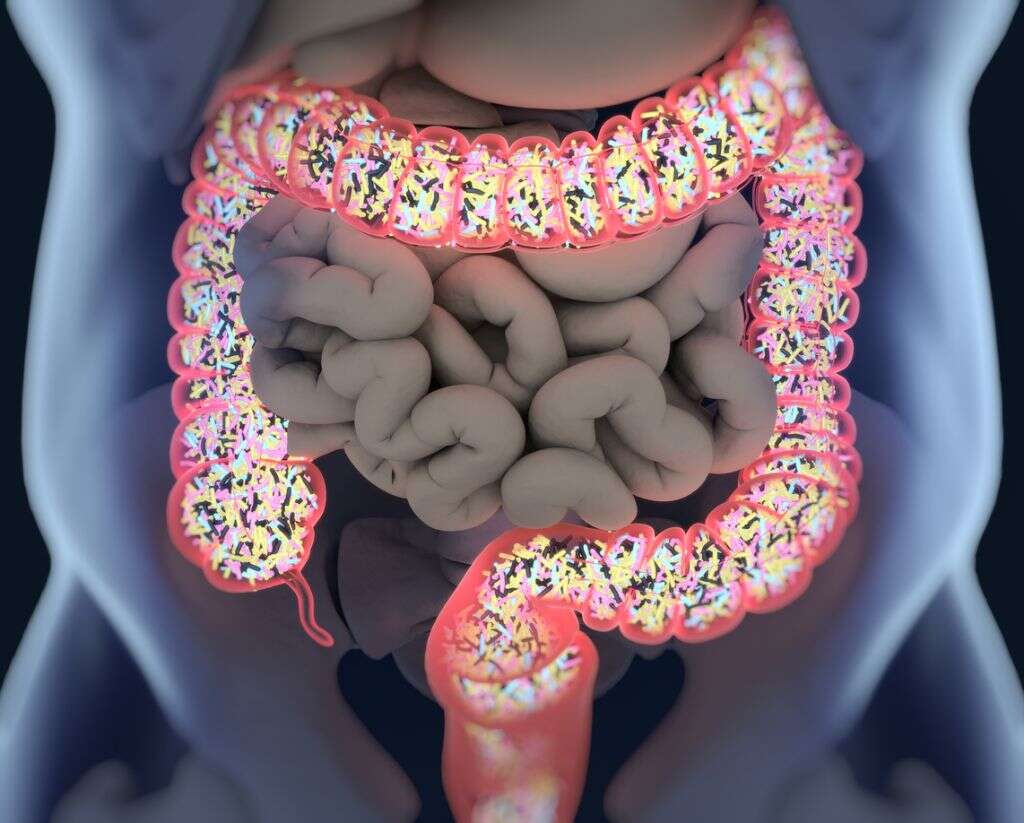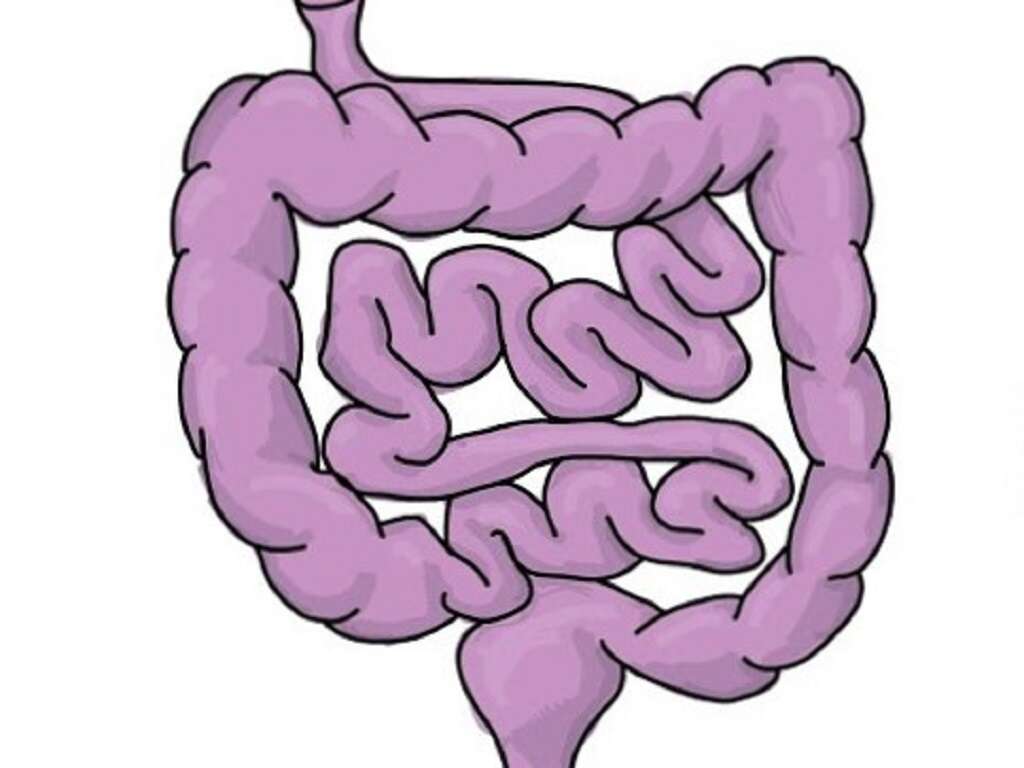What Is Leaky Gut Syndrome?
Leaky gut syndrome is a phenomenon that has received quite a bit of attention in recent years and is controversial in the medical field. Doctors who practice Western medicine often do not recognize it as a real condition, while holistic and natural health practitioners are more likely to view the syndrome as a real health issue.
There is an acknowledgment that gut permeability does occur and is associated with a number of other health concerns, but the question is whether it is the cause or the symptom of these associated diseases. There are a few animal studies that indicate that permeability exists prior to the onset of the disease, such as in the case of diabetes.1Meddings, J.B., J. Jarand, S.J. Urbanski, J. Hardin and D.G. Gall. Increased gastrointestinal permeability is an early lesion in the spontaneously diabetic BB rat. American Journal of Physiology. 1999 Apr;276(4):G951-7. doi:10.1152/ajpgi.1999.276.4.G951.

1. Leaky Gut Syndrome
The digestive tract not only breaks down food, but it also serves as a barrier that prevents toxins, bacteria and other harmful substances from entering the bloodstream and getting transported to organs and other tissues. Water and nutrients pass through the intestinal walls through what is known as tight junctions.
If these tight junctions loosen, more substances are able to slip through. This is what the term “leaky gut” refers to. The excess permeability in the lining enables unwanted substances to enter into the bloodstream. Those who recognize leaky gut as a real disease believe that this can lead to systemic inflammation and, eventually, disease.

2. Causes
Thus far, the precise causes are unknown. The single protein associated with gut permeability, zonulin, is activated in people who are genetically predisposed to the condition. Gluten and bacteria are the two triggers that seem to activate the zonulin protein.
There are a number of factors that may contribute to the development of leaky gut syndrome. Nutrient deficiencies, inflammation and poor gut health are all possible causes. Chronic stress may be a contributing factor. In addition, consuming excessive amounts of sugar and alcohol may lead to the condition, as well as the long-term use of non-steroidal anti-inflammatory drugs.

3. Symptoms
There are a number of symptoms associated with leaky gut syndrome. Since many practitioners do not recognize the syndrome as a real condition, it can be difficult to receive a diagnosis. Leaky gut syndrome may be the cause of symptoms such as chronic diarrhea, bloating or constipation. Headaches and difficulty concentrating are possible, as well as overall fatigue.
A person with excess permeability in the gut may experience nutrient deficiencies. Skin problems are possible, including eczema, rashes and acne. The condition can result in systemic inflammation. The potential exists for people with leaky gut syndrome to experience joint pain.

4. Leaky Gut and Celiac Disease
Celiac disease is a serious medical condition that results in a severe allergy to gluten. The disease is an autoimmune issue. When a person with celiac consumes gluten, it damages the small intestines. This leads to an inability to absorb nutrients. Long-term damage results in a number of potential health complications.
People who have celiac disease also have a high degree of permeability in the gut. This permeability can increase immediately following the consumption of gluten products. This leaky gut can contribute to the severity of the symptoms associated with the condition.

5. Leaky Gut and Crohn’s Disease
Crohn’s disease is a condition that impacts the digestive tract. This disease results in chronic inflammation within the digestive system. Common symptoms include severe diarrhea, malnutrition and weight loss, intense pain in the abdomen and fatigue.
People who have this disease may also exhibit excess permeability within the digestive tract. Relatives of those who have Crohn’s and are thus at risk for getting the disease themselves tend to have leaky gut syndrome prior to developing Crohn’s.

6. Leaky Gut and Diabetes
Type I diabetes is associated with a leaky gut. This form of diabetes is the result of the autoimmune destruction of the pancreatic beta cells that produce insulin. When there is no insulin in the body, sugar builds up in the system and can lead to life-threatening complications, such as heart and blood vessel diseases.
One of the potential causes for Type I diabetes is the introduction of foreign substances into the body. This can occur when the individual has leaky gut syndrome. Genetics also plays a role in who gets the disease. It has been found that a large percentage of those with Type 1 diabetes have increased levels of zonulin, the protein responsible for gut permeability.

7. Leaky Gut and Irritable Bowel Syndrome
Irritable bowel syndrome is prevalent among the U.S. population, though many only have mild symptoms and may not be diagnosed. IBS occurs within the large intestine. Common symptoms include abdominal pain, cramping and bloating, as well as diarrhea and constipation.
Intestinal inflammation, severe infections and imbalances in gut bacteria are all considered potential causes for IBS. These are also associated with leaky gut syndrome. People with irritable bowel syndrome are likely to have increased levels of permeability in the gut.

8. Unsupported Claims
Excess permeability in the gut, or a leaky gut, does occur, though there is controversy over whether it is the cause or symptom of associated diseases. There are some claims, however, that have yet to find widespread support from scientific study. Autism, depression, anxiety and cancer are all medical conditions that have been linked to leaky gut syndrome without clear scientific support.
Much of the research on these conditions are inconsistent in the results between them. While some studies indicate a high degree of permeability in individuals with the condition, others find that the gut’s tight junctions are normal. More research is necessary before linkages between a leaky gut and many health conditions can be established or refuted.

9. Foods to Avoid
People who have a leaky gut would benefit from a change in diet. There are some foods that are damaging to gut health and lead to increased inflammation and unhealthy gut bacteria levels. Both of these are associated with leaky gut and other health conditions.
It is a good idea to steer clear of foods containing gluten. Wheat is the biggest culprit, but there are others to watch out for, including barley, rye, oats and seitan. A number of sauces also contain gluten, such as soy sauce and salad dressings. Avoid consuming processed meats and dairy products, as well as junk food, alcohol, sugary drinks and carbonated beverages.

10. Foods to Eat
Just as there are foods that contribute to an unhealthy gut, there are those that improve digestive health. These items are good to consume whether a person has a leaky gut or not. They aid in keeping the microbiota in balance, help with nutrient absorption and boost the immune system.
Eating a variety of vegetables, particularly leafy greens and cruciferous veggies, is exceptionally beneficial, as are roots and tubers. Fermented vegetables are great for the digestive tract. Consuming healthy fats, fish and lean meats in moderation is beneficial for overall physical health.












